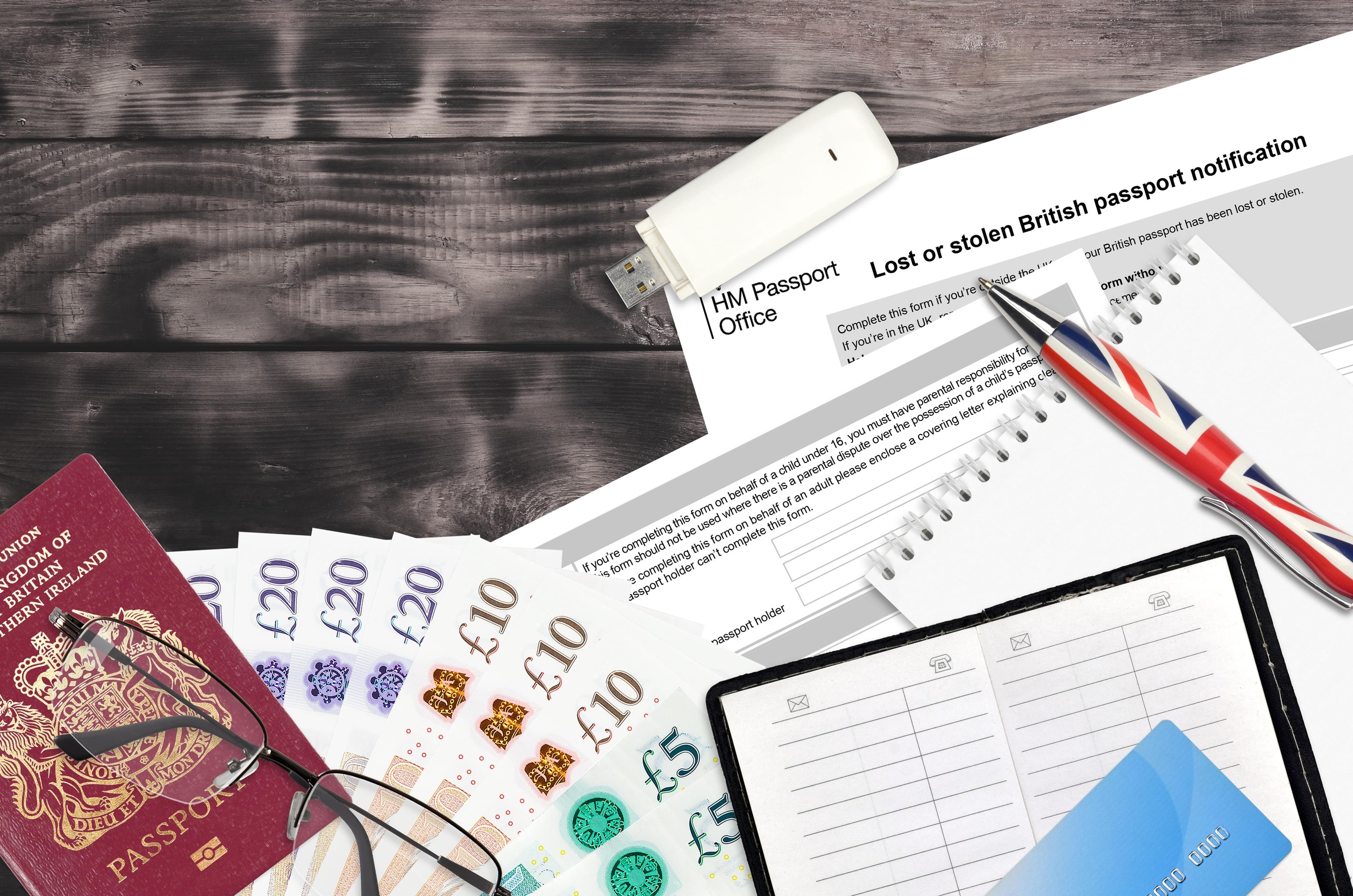You can use a credit card to be smart about your money and open up new places to you. Having a credit card can help you build credit, give you cash when you need it, and save you money and better your life. To get a credit card, you need to do more than just want one. In this help, we’ll show you how to get a credit card and make sure it fits your needs. After reading our tips, you can be sure you’ll get the right credit card. It will then start giving you all of its benefits!
What is a Credit Card?
Credit cards let you pay for things or services without cash. Any shop that takes that brand of credit card will let you use it. Banks and credit card firms among other businesses handling money provide credit cards. Although you have to agree to pay them back with interest, credit cards let you borrow money from companies. Further benefits of credit cards include travel insurance, extended warranty protection on goods, and more. You have to be accepted by the credit card company based on your credit history and score before you can use a credit card. Make sure to read all the terms of your credit agreement before signing up!
Using a credit card is an easy, efficient way to make purchases and access rewards. But what kind of credit card should you get? Watch out to find out!
Types of Credit Cards
Credit cards come in many forms, so it’s important to know the differences between them so you can pick the one that works best for you.
For secured credit cards, you have to put down a security deposit before you can get the card. This deposit will be used as collateral if you don’t pay back the loan. This kind of credit card may be good for you if you have bad credit or none at all because the interest rates and terms are usually better than with other credit cards.
When you use a rewards credit card to buy something, you can get extra points, cash back, or other perks. When you use the card for daily things like gas or food, you can generally get more points.
Business credit cards are made for business owners who need to keep track of their spending and costs separately. Most of the time, they have higher amounts, more points, and special deals that normal shopper cards don’t offer.
American Express has a number of high-end credit cards with extras like trip insurance and invitations to special events. Most of the time, these cards have higher yearly fees, and you need to have great credit to get one.
It doesn’t matter what kind of credit card you want; you should look at all of your choices before making a choice. To get the best deal, make sure you understand all of the rules that come with each card, such as interest rates, late payment fees, and the minimum payment amount.
Understanding Your Credit Score
A credit score is a three-digit number that tells a lot about how bad your credit is. Lenders use it to figure out how risky it is for you to get loans and other credit. This is because a good credit score can affect both whether you get a loan or not and the interest rate you pay.
What makes up your credit score is important to know if you want to understand it. Your payment history is the most important part of your score; it makes up 35% of the whole. This includes any payments you made late or missed on your credit record. The amount of debt you have is also taken into account; it makes up 30% of your number. A big part of your score is how long you’ve had credit accounts open and what kinds of accounts you have.
Not only should you know what affects your score, but you should also keep an eye on any changes that might happen over time. In order to do this, you should regularly check your credit record and keep an eye on any new activity, like new requests or account starts. You can take steps to keep your credit score high and show lenders that you are a responsible user if you know about these changes.
Overall, if you want to be financially successful, you need to know your credit score and take steps to keep it in good shape. The next step is to learn about your credit past and how it affects your general score of credit.
Knowing Your Credit History
Your credit past tells a lot about how well you handle your money in general. When you ask for any kind of loan or credit, it looks at your credit report to see how you’ve treated credit accounts in the past. You can get a better idea of your financial situation and find places where you can improve by looking at your credit records.
The most important parts of your credit report are your payment history, your debt, the length of your credit history, the types of accounts you have, and the number of recent queries. Payment history makes up the majority of your score, so making sure all payments are made on time is essential. Your debt-to-income ratio is also looked at; lenders want to see that no more than 30% or so of your income goes toward debt payments each month. The longer you’ve had credit accounts open, the better, as it shows lenders that you have a track record of managing debt responsibly. Lastly, recent inquiries made by potential creditors will lower your score slightly but typically only if there are too many in a short period.
By understanding what factors contribute to your credit history and taking steps to manage them responsibly, you can ensure that you maintain a good rating with major bureaus such as Experian and Equifax. This will make it easier for lenders to trust you as a borrower when applying for loans or other forms of credit in the future.
Making Sure You Are Eligible For A Credit Card
When applying for a credit card it’s important to make sure that you are eligible. Credit card issuers have certain criteria that must be met for them to approve an application, and if you don’t meet these requirements then your application may be rejected.
The most important factor is typically your credit score. Most credit card companies require a minimum score of 650 or higher to qualify, so it’s important to check yours before applying. You should also review your credit report and ensure there are no errors or inaccuracies that could be bringing down your score.
Your income level is also taken into consideration when evaluating a credit card application, as lenders want to make sure you can handle the payments associated with the card. Most companies require applicants to have at least $25,000 per year in take-home pay. Other factors such as past payment history, length of time on the job, and other debts will also play a role in determining eligibility.
Finally, some types of cards have specific requirements such as secured cards which may require a security deposit, or business cards which may require proof of income from self-employment. Paying attention to all of these details can help you make sure you are eligible for the type of credit card you are applying for before applying.
Applying For A Credit Card
Applying for a credit card can be an exciting yet daunting process. To increase your chances of approval, you should start by making sure that you are eligible for the type of card you are applying for. This means taking a look at your credit score and ensuring it meets the minimum requirements set by the issuing company. You should also review your credit report and make sure there are no errors that could be hurting your score. Your income level is also taken into consideration, so make sure you have enough take-home pay to cover payments associated with the card. Lastly, some cards may have additional requirements such as secured cards which require a security deposit, or business cards which require proof of self-employment income. Knowing these details in advance will help ensure that your application is successful when you submit it.
The credit card application process can be intimidating, but with the right informativ artikkel and preparation, you can increase your chances of approval. Now it’s time to start researching different types of credit cards and their associated benefits – stay tuned for more!
Researching Different Types of Credit Cards & Benefits
When researching different types of credit cards and their associated benefits, it’s important to understand the basics. Start by learning about the credit limit, which is the maximum amount of money that can be charged to the card. Also take into account other factors such as foreign transaction fees, balance transfers, rewards programs, and statement credits. Additionally, consider what type of credit card is best for you – a secured card if you have bad credit or a business card if you are self-employed. Finally, compare different cards from major credit bureaus such as American Express and other financial institutions to find the best option for you.
Once you have done your research and chosen the right card for your needs, make sure to read through all of the terms and conditions carefully before applying. Understanding how payments work (including late payment fees), billing cycles, minimum payments, time payments and more will help ensure that you get the most out of your new credit card.
Comparing Different Offers From Financial Institutions and Credit Card Companies
Comparing different offers from financial institutions and credit card companies is an important step to finding the best deal. It’s essential to compare fees, interest rates, rewards programs, and other benefits offered by each card issuer. Start by researching online or talking to a representative at a bank or credit union. Look for low annual fees and competitive interest rates, as well as any special offers that may be available. Additionally, consider whether a secured or unsecured card is right for you. Secured cards require a security deposit which can be used as collateral if the balance isn’t paid in full each month, while unsecured cards don’t require any upfront payment but generally have higher interest rates and fewer reward options. Finally, make sure to read through all of the terms associated with the offer before signing up for a new credit card. Understanding all of the details will help ensure that you get the best deal possible.
Submitting an Application With the Appropriate Documentation
Applying for a credit card requires the appropriate documentation to be approved. First, you’ll need to provide personal information such as your name, date of birth, address, and phone number. You may also need to provide proof of employment or income if you are applying for a rewards card. Additionally, some lenders may require a copy of your most recent credit report as part of the application process. Finally, make sure that all of the documents you submit are up-to-date and accurate to avoid potential delays in processing your application. Once all the required paperwork is submitted with the completed application, it can take anywhere from 2 days up to 2 weeks before you receive a response from the lender regarding your approval or denial status.
Understanding the Terms and Conditions of The Card Agreement
It is important to understand the terms and conditions of your credit card agreement before signing it. This document outlines all of the fees, interest rates, and other important details related to your credit card. Be sure to read through the agreement thoroughly to ensure that you are comfortable with the terms before you sign. Pay particular attention to any annual fees, late payment charges, balance transfer fees, or other hidden costs that you may not be aware of. Additionally, make sure that you understand the repercussions of not paying your balance on time as this could have serious implications on your credit score. Finally, if there is anything in the agreement that you do not agree with or fully understand, consult with a financial advisor for clarification before signing.
By understanding the terms and conditions of your credit card agreement, you are taking a vital step in protecting yourself from unnecessary fees, charges, and other consequences that could have a large impact on your financial well-being. Read on to learn more about reading the fine print of different offers!
Reading the Fine Print on Different Offers
It is important to be aware of the terms and conditions associated with different credit card offers. Always read the fine print of any offer before signing. It is essential to understand all fees, interest rates, and other details that could impact your financial well-being. Be mindful of any annual fees, late payment charges, balance transfer fees, or other hidden costs that may not be immediately apparent. Additionally, make sure you are aware of the repercussions for not paying off your balance on time as this could hurt your credit score. If there is anything in the agreement that you don’t agree with or don’t understand, consult a financial advisor for clarification before signing. By reading the fine print carefully and understanding all terms and conditions associated with an offer, you can protect yourself from unnecessary fees while taking control of your finances.
Being Aware of Interest Rates, Balance Transfers, Security Deposits, Foreign Transaction Fees, and Time Payments
It is important to be aware of the key terms associated with credit cards. Interest rates, balance transfers, security deposits, foreign transaction fees, and timely payments are some of the most important factors to consider when evaluating a credit card offer. Interest rates will vary among different card issuers and can have a huge impact on how much you pay in total for the purchases you make. Balance transfers allow you to transfer existing balances from one card to another while avoiding late fees or interest charges. Security deposits are sometimes required depending on the specific credit card being applied for and may be refundable after a certain amount of time or when certain conditions are met. Foreign transaction fees are charged when making purchases outside of your home country which can add up quickly if not taken into account. Lastly, time payments can help manage debt by allowing repayment over an extended period versus all at once. Knowing these different terms and understanding their implications can help you make better financial decisions regarding your credit card usage.
Comprehending Reward Points, Cash-Backs & Statement Credits
Reward points, cash back and statement credits are all incentives offered by credit card companies to encourage customers to use their cards more frequently. Reward points can be earned based on the amount of money that is spent and can be redeemed for a variety of items such as airline tickets, retail items, or gift cards. Cashback offers to give users a percentage of the money spent in the form of a credit against their account balance. Statement credits are applied directly to the customer’s credit card account when certain spending thresholds are met. Comprehending these rewards can help you maximize your spending power and make sure that you get the most out of your credit card. For example, by understanding how reward points work, you can determine which purchases will earn you the most points or the best value for your money. Additionally, cash-back programs and statement credits provide direct discounts on purchases which can lead to significant savings over time. By taking advantage of these features, customers can get more out of their credit cards than just making everyday purchases.
Managing Your Credit Card Responsibly
Managing your credit card responsibly is essential to take full advantage of its benefits. To begin, it is important to first be aware of the credit limit imposed by your card issuer and stay within that limit. Additionally, make sure that you pay your bill on time each month and avoid making late payments as this will negatively affect your credit score. Furthermore, be mindful of any fees or interest rates associated with the card and strive to pay off your balance in full each month if possible. Balance transfers can also be a great way to save money on interest if used correctly. Finally, keep track of all transactions made through the card and review your monthly statements for accuracy. By following these steps, you can ensure that you are managing your credit card responsibly and taking full advantage of its benefits.
By understanding and following the tips outlined above, you can manage your credit card responsibly and reap the benefits it provides. Now it’s time to take the next step by making sure that you are setting a reasonable limit for everyday purchases and billing cycles.
Choosing a Reasonable Limit for Everyday Purchases and Billing Cycles
When it comes to credit cards, it is important to choose a reasonable limit for everyday purchases and billing cycles. This will help you stay within your means and avoid debt. A good rule of thumb is to never spend more than 30% of your total credit limit each month. This will help ensure that you can make all necessary payments without going over your limit and incurring fees or interest charges. Additionally, try to pay off any outstanding balances on time each month to maintain a healthy credit score. Finally, set yourself a budget for everyday purchases and stick to it so that you don’t end up spending more than you can afford. By following these tips, you can manage your credit card responsibly and take full advantage of its benefits.
Making Timely Payments and Avoiding Late Payment Penalties
Making timely payments is essential to managing your credit card responsibly. By ensuring that you make all payments on time, you will avoid late payment fees and maintain a good credit score. Additionally, when making payments, it is important to pay at least the minimum amount required each month to remain in good standing with your credit card issuer. Paying more than the minimum due can help reduce interest costs over time and help improve your credit score. Finally, if you are having difficulty making payments on time due to financial hardship, contact your credit card issuer as soon as possible to discuss potential payment plans or other options. By following these steps, you can ensure that all of your payments are made on time and avoid any late payment penalties.
Summary
Making sure to make timely payments on your credit card is an essential part of responsible credit management. To maintain a good credit score and avoid late payment penalties, it is important to make at least the minimum payment due each month. If financial hardship makes it difficult to make timely payments, contact your credit card issuer as soon as possible to discuss potential payment plans or other options. Keeping up with payments will help you keep your account in good standing while protecting your credit score.




